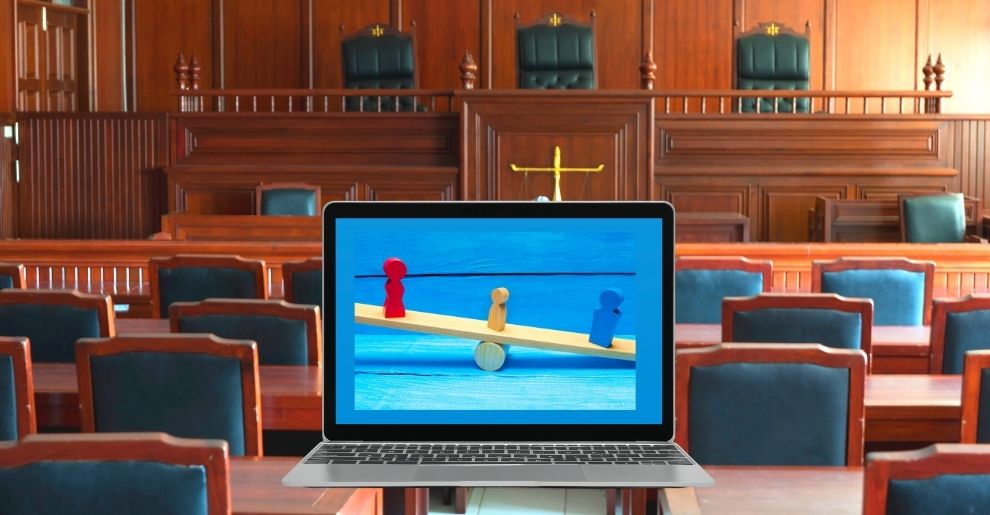Remote family court hearings – how do they work?

The introduction of social distancing in response to the coronavirus outbreak has caused disruption to many vital services – including in the justice system. Many services that would typically have taken place face-to-face have been adapted to meet the challenges of our current climate. One such service is family court hearings, which may now take place remotely.
In this post, we look at how remote family court hearings currently operate.
Will my family court hearing be held remotely or in-person?
For now, it is the default position that family court hearings will be held remotely using phone, video link or emails. However, there may be certain circumstances where, in order to ensure fairness and in the interests of justice, a court-based hearing is necessary.
Where such a hearing is safe to take place, you may need to attend a court-based hearing. It will be up to the judge, magistrates or panel to decide whether a court-based hearing is necessary. They will consider whether audio or video testimony is suitable for the matters at stake, and the issues they may present for those taking part in the hearing.
What if my case is urgent?
Even in the circumstances where a case is urgent, arrangements may be made swiftly for the hearing to be conducted remotely.
When it is not possible to carry out the hearing remotely, but there are urgent issues to be dealt with, the court can arrange to conduct a court-based hearing while adhering to social distancing guidelines.
How is a remote hearing arranged?
Your solicitor may arrange a remote hearing, or if both parties have not yet instructed a solicitor, the court will organise the remote hearing.
When the applicant has instructed a lawyer, they will be responsible for arranging the hearing. However, if the applicant does not have legal representation, but the respondent does, the respondent’s solicitor will arrange the remote hearing.
Where the court buildings are closed, a member of staff or a judge working remotely will arrange the hearing.
What technology may be used in a remote hearing?
Remote hearings can be carried out using a variety of communication methods, and the tools that are used will depend on the requirements of the hearing.
The following methods may be used:
- An exchange of emails between the parties involved in the hearing
- Using telephone conferencing technology
- Where the court has a video-link system, this may be used
- Skype for Business, which has been installed on many judicial laptops
- Any other method of communication deemed to be appropriate for remote hearings such as Facetime, Zoom or BT MeetMe.
Remote hearings and confidentiality
Remote hearings must be confidential, and all parties to the hearings must attend in private. It is also now an offence to make an unauthorised recording of a remote family court hearing under the Coronavirus Act 2020.
Magistrates and judges must strive to ensure that only those who would be permitted to be in the courtroom may have access to the remote hearing and that all parties understand the rules.
If you would like any more information in relation to this article then please feel free to contact me: Telephone 020 8221 8088 via email: vikram.kumar@bowlinglaw.co.uk or visit my profile.
Website content note: This is not legal advice; it is intended to provide information of general interest about current legal issues.
